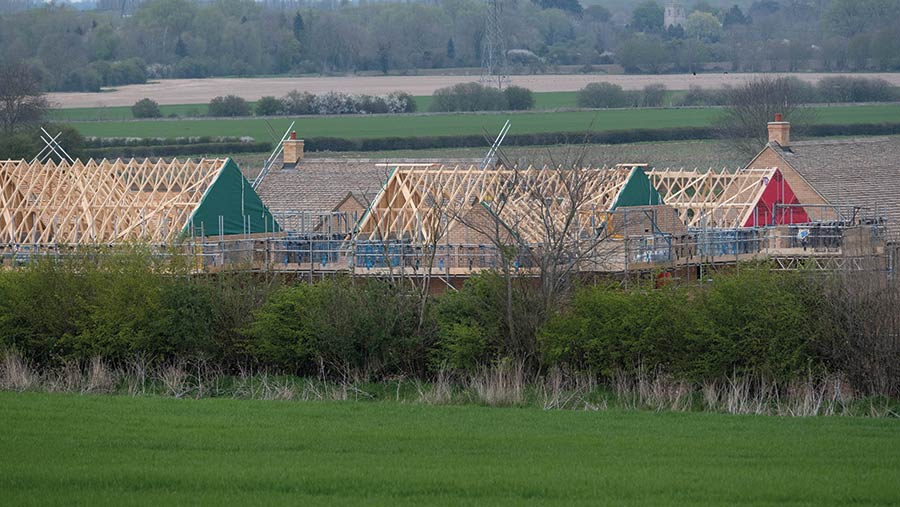Labour’s compulsory land purchase won’t solve housing issue
 © Tim Scrivener
© Tim Scrivener Labour Party plans to allow local authorities to compulsorily purchase land for development at agricultural value will not solve the housing shortage, say commentators.
The Financial Times reported the plan on Tuesday (30 May), but no further detail has since been made available.
See also: Planning permission – Natural England to search out nutrient mitigation sites
Labour’s plan goes a step further than a recent government amendment to the Levelling up and Regeneration Bill.
Local authorities can already use compulsory purchase orders (CPO) to buy land, but must make a payment to recognise any “hope value” that prospective planning permission would attach to its value.
The government amendment would allow local authorities to use CPO powers to acquire land for affordable housing, health and education purposes without making the hope value payment.
Instead it would be for the Secretary of State for the Department for Levelling Up, Housing and Communities to decide on a case-by-case basis whether the payment should be made.
The CLA is lobbying to have the amendment removed. Its chief surveyor Andrew Shirley said that land value was only a very small part of project costs and was being singled out as if that was going to sort out the problem.
Responding to the Labour Party plan, he said: “I think the problem is around the planning system, it’s so difficult to get planning through – that’s where the problem really lies.
No quick solution
“Compulsory purchase is not an easy or a quick solution. There’s a lot of excitement around headline figures [of development values], but it takes a long time to get a site approved and local authorities will have to shoulder the risk of bringing a site forward. Most local authorities can’t cope with the workload as it is.”
Local authorities would not be building on the sites themselves, but would sell them on to developers.
Central Association of Agricultural Valuers’ secretary and adviser Jeremy Moody said that while there was no detail, the plan as reported chimed with Labour leader Sir Keir Starmer’s recent speech on housing in which he committed to reinstating housebuilding targets.
However, Mr Moody said that allowing local authorities to compulsorily purchase land at existing use values would risk fouling up markets, as it would remove the incentive for many landowners to bring sites forward for development at all.
Planning delays
The planning system is under constant review, with several consultations having taken place on the proposed National Planning Policy Framework (NPPF), which governs the planning regime.
This includes a proposal to bring in an overarching infrastructure levy, effectively a tax on development, to replace the current community infrastructure levy.
There has also been wider discussion of how to tax the uplift in land values once planning is granted.
Delays in gaining planning have been added to by the policy review, the recent local elections and now the prospect of a general election.
Things have been further complicated by recent requirements that developments must achieve what is known as “nutrient neutrality”, to account for their nitrate and phosphate impacts on the environment. Land or measures must be put forward to mitigate this impact.
Compulsory purchase review
The government has also asked the Law Commission to review the current compulsory purchase law and recommend reform.
The aim is to complete the associated consultation and proposals by 2025. The review is not expected to be favourable towards the interests of landowners.
